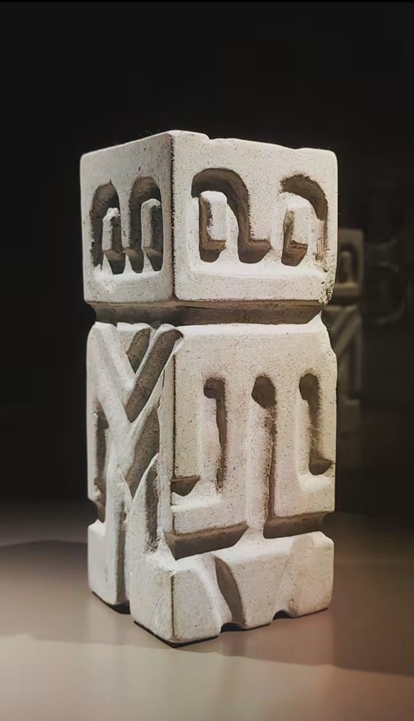Diego Tapia Figueroa, Ph.D. y Maritza Crespo Balderrama, MA “Todo lo que hago, lo hago con alegría.”...
Leer más- artículos
ABOUT US
Relational and Social Constructionist Consortium of Ecuador (IRYSE) Diego Tapia Figueroa, Ph.D. and Maritza Crespo Balderrama, M.A. Final note: In this final post of our blog, we reproduce the initial presentation made on January 26, 2018. Goodbye From Quito, Ecuador, we open this space for transformative relational dialogues, rooted in relational-social constructionism, trusting that it will be a valuable contribution to our contexts. We aim to generate new questions, conversations, and creative, reflective, meaningful, and diverse possibilities. We seek to ensure that our narratives and actions foster the joint creation of new meanings through committed coordination, cultivating practices with socially responsible significance. Using a language that focuses on resources and the capacity to construct contextualized human worlds, we engage in the ongoing process of building social worlds. These worlds embody transformative processes, grounded in a sensitive and critical understanding of how dialogue shapes individuals and expands possibilities. This act of being with others fosters connections rooted in relational ethics, radical presence, and consistently reasoned inquiry. It nurtures innovation, acceptance of differences, and openness to diversity, driven by permanent curiosity, imagination, creativity, and respect. We place our trust in the processes of dialogue, in relationships, and in...
Leer másPenultimate publication
Relational and Social Constructionist Consortium of Ecuador (IRYSE) Diego Tapia Figueroa, Ph.D. and Maritza Crespo Balderrama, M.A. And yes, we are leaving to return, probably in other ways. When we began publishing this blog on January 26, 2018, and decided to do it every 15 days -maintaining, against all odds, that biweekly frequency- we trusted in opening spaces for reflective dialogues in our relational-professional contexts. We also trust that some of what we have published may have been a positive, useful contribution that served our imaginary readers. It may have been like that on some occasions, perhaps. We have committed ourselves to the dissemination, in the context of Ecuadorian society, of philosophy, epistemology, and the social constructionist/relational/collaborative/generative/dialogical perspective, as well as the significant contributions of many of its most representative authors. In Ecuador, these ideas and practices are widely unknown, ignored, or nonexistent. It has been a relentless search for questions, an invitation to reflective pragmatics—a risk, from the edges, to propose words to make, for example, “that transformative dialogue called therapy” continuing with curiosity, respect, and creativity. Relational dialogue -conversations are endless- the dialogical/relational process builds new futures; and, from the future, the process is transformed. When...
Leer másCouples’ Intimacy (***)
Relational and Social Constructionist Consortium of Ecuador (IRYSE) Maritza Crespo Balderrama, M.A. and Diego Tapia Figueroa, Ph.D. Although for many people orgasm is still a taboo, for others it is a creative discovery that invites experimentation. Talking about sexuality is discussing what makes us human, our personal history, our worldview, and how we connect with others and our significant relational contexts. Sex is not only a basic human need but also something that permeates our lives, adapts to our circumstances, and transforms as our ways of thinking and acting change. Orgasm: A Familiar Experience for Men and an Unknown for Women Orgasm is often recognized as the pinnacle of sexual experience. While it has physiological and anatomical components involving stimulation of the genital organs and electrical discharges in the brain, it undeniably has a high emotional and psychological component that requires trust, satisfaction, and connection with one’s body and that of the other person. The male orgasm has been extensively studied by scientists, doctors, and psychologists, likely as evidence of the cultural prioritization of the masculine. In contrast, the female orgasm remains not fully understood, with much of its study shaped by prejudice and ignorance. Orgasm allows...
Leer más90 Years of Kenneth Gergen
SERIES: SIGNIFICANT CONTRIBUTIONS AND AUTHORS IN RELATIONAL CONSTRUCTIONISM-SOCIAL CONSTRUCTIONISM Diego Tapia Figueroa, Ph.D. and Maritza Crespo Balderrama, M.A. September 4, 2020 https://iryse.org/serie-aportes-y-autores-significativos-en-el-socioconstruccionismo/ “Praxis gives meaning to words.” (Ludwig Wittgenstein) Prologue This Monday, December 9, 2024, the TAOS INSTITUTE community is coming together to celebrate Kenneth Gergen’s 90th birthday. We have gathered a few brief but inspiring ideas that Gergen shared during a dialogue with Sheila McNamee, which some of us were fortunate to follow from a distance: A long and fulfilling life is supported by: Having people who love you. Maintaining a sense of humor. Nurturing curiosity about the extraordinary things in life. In social constructionism, creativity lies in continuously opening doors. We must ask ourselves: Where is the ethics of construction? It is essential to incorporate and legitimize what others—especially those who are different—have to say. It’s about connecting with what the dialogical relationship brings forth. «Being in conversation is a different way to approach differences and resolve conflicts.» — Sheila McNamee. The key is to keep asking questions. Relational research aims to address the gaps that relationships create. How can we make diverse traditions matter and use their resources to foster transformations and create a different...
Leer más| L | M | X | J | V | S | D |
|---|---|---|---|---|---|---|
| 1 | ||||||
| 2 | 3 | 4 | 5 | 6 | 7 | 8 |
| 9 | 10 | 11 | 12 | 13 | 14 | 15 |
| 16 | 17 | 18 | 19 | 20 | 21 | 22 |
| 23 | 24 | 25 | 26 | 27 | 28 | 29 |
| 30 | ||||||
